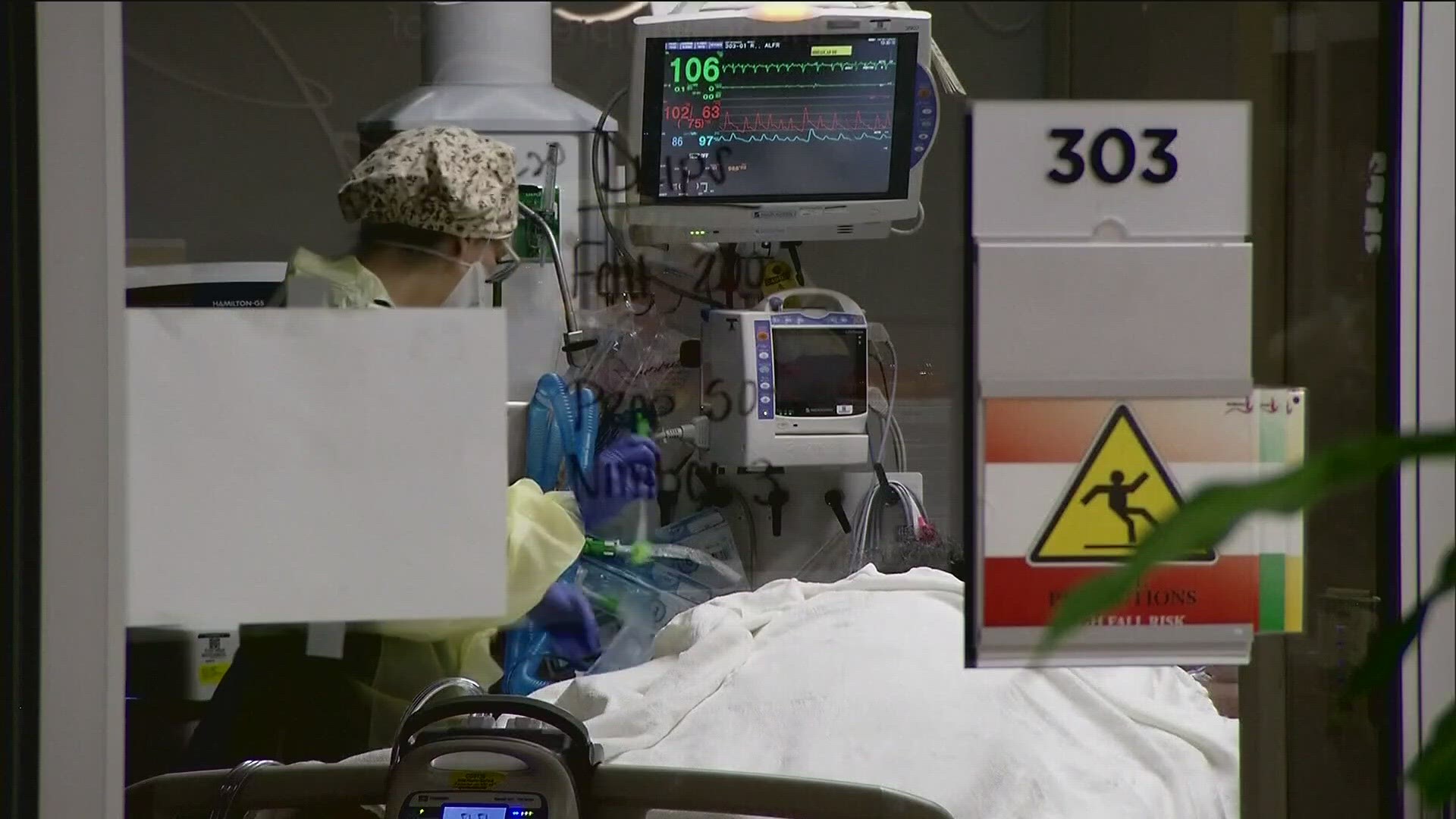ATLANTA — This National Nurses Week, several in the medical field are worried about the future of healthcare.
A newly released study shows the alarming numbers of baby-boomer generation nurses who are expected to leave the industry in the next decade.
Dr. Ashley Blackmon, President of the United Advanced Practice Registered Nurses of Georgia (UAPRN), said that is the new reality they are already starting to see.
“I was just observing with some of my colleagues the other day about how we're not seeing any baby-boomer nurses or any of that generation," she said. "We're even seeing less Gen X nurses as well.”
Blackmon believes this could jeopardize the future of staff, patients and families.
"People are suffering every day and dying every day. The general public doesn’t realize these deaths are preventable," she added.
On top of the already-dire nursing shortage, which was made worse during the COVID-19 pandemic, studies have now shown that approximately 1 million registered nurses will retire in the next 10 to 15 years.
That’s almost one-third of the nursing workforce, according to the National Institutes of Health.
Dr. Blackmon explains this has a trickle-down effect, as new nurses won’t be able to learn from nurses with decades of experience.
“Unfortunately, what we're seeing right now is a bunch of new graduate nurses being managed or educated by baby nurses," she explained. "So there is no one to go to with questions or issues. Constantly I get asked either inappropriate questions that the nurse could have either figured out on their own with a more experienced nurse to help them, or I am not notified of an issue that needs to be addressed because it's not recognized as an urgent issue. Those are big problems.”
She said that could also mean you may not get the care you need. To fix this, she said the whole healthcare system needs a revamp, and adds that hospital staff should be paid better money and offered more breaks to entice more people to join the profession.
“If we could just address a lot of the issues in our healthcare system, we could help increase life expectancy, help increase quality of care. Georgia is especially affected by this since we are such a large geographic state," Dr. Blackmon said. "People are dying and I don't think that anybody realizes exactly how widespread this is."
11Alive reached out to several hospital systems across the metro area to get their take on this report.
Wellstar's Chief Nurse Executive and Chief Experience Officer, Susan Grant, said the following:
"Brought on by COVID, Wellstar Health System, like other health systems across the nation, has been seeing new trends in the current healthcare shortage, different than prior years. We have had shortages before, and the pandemic has exacerbated it. However, it's important to clarify this is a healthcare workforce shortage – not just a nursing shortage.
To maintain our workforce and to help new nurses come into the healthcare industry, we must not only support our nurses and unburden them by utilizing new technology, changing the models of care, and shifting roles and responsibilities but also by encouraging new programs that reach children, teens, and young adults interested in nursing and healthcare professionals long before they might learn about their passion for care otherwise.
For example, we have done this in partnership with the Wellstar School of Nursing at Kennesaw State University by holding a camp for high school students to provide hands-on learning for those interested in the healthcare field. Flexibility in care models, listening to our team members, career pathways such as internal promotion and development, and even creating new work models that offer the flexibility and different experiences that travel programs may offer are all ways Wellstar has tried to combat burnout and retain top talent."
A spokesperson with Emory Healthcare said,
"Emory Healthcare’s top priority is providing safe, high-quality care to our patients and their families. During the past two to three years, we have experienced nurses leaving the profession for new opportunities, while others have chosen to retire or move to travel nurse positions, intensifying the shortage gap. Our dedicated teams of clinical staff nurses, including travel nurses, have worked tirelessly to care for patients during this very challenging time, and to them, we are grateful.
We continue to recruit and hire for nursing positions to support our patient care mission. We invest in our workforce by offering market competitive pay, robust tuition reimbursement, career development, progression programs and a Magnet environment for nursing excellence, with five designated Magnet facilities. We believe in long-term sustainable strategies with a focus and commitment on the growth and well-being of our team members, while creating a great work environment for clinicians.
Emory Healthcare does this through our Workplace Safety Council, where two of the three leaders are nurses, and through creating flexible work options. We welcome new entrants into health care and a career that will have vast opportunities to make a real difference in people’s lives today and in the future."

